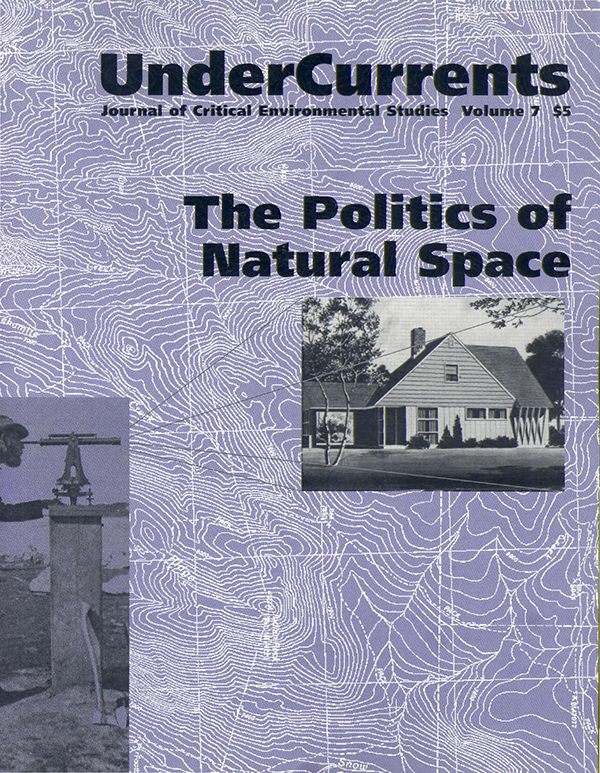Editorial
DOI:
https://doi.org/10.25071/2292-4736/37690Abstract
Perhaps it might be best to begin here, with the particularities of the space in which UnderCurrents is produced. In its rather desultory isolation from the intensities of the city of Toronto, and its somewhat ironic "distance" from the mythos of the wild, UnderCurrents is both figuratively and literally situated at a juncture between the realms of culture and nature. For readers familiar with this journal, part of what we have attempted to negotiate over the years has been some of the conceptual boundaries which work to bracket and divide these intimately inseparable realms. In essence, UnderCurrents has sought to define something of a liminal, in-between space from which to consider various problematics of nature and the "natural". This project exists in what is strictly speaking, the 'suburban.' York University happens at edges of both Canada's largest metropolis and the nation's most densely populated and highly 'cultivated' cottage and farm country. Beside the woodlot stands the mall, and within this nexus, we sit in a three-story, neatly partitioned, sealed glass building which houses the Faculty of Environmental Studies . Needless to say, this site is full of contradictions. And yet there is, most definitely, a here here. Like any place, it has its pleasures, conditions of power, regulatory structures and regimes, deprivations, excesses and economies. As such, and in consideration of its multitude of contradictions, we find this to be an apropos site from which to instantiate some discussions about an equally contradictory figure we initially termed, and perhaps now, after putting this journal together, can only provisionally call, "natural space".
[...]
Downloads
Published
How to Cite
Issue
Section
License
Copyright (c) 1995 Michael Bresalier, Shauna M. O'DonnellCreators retain copyright for all writings and artwork published in UnderCurrents. New material published as of Volume 21 (2022) is available under a Creative Commons Attribution 4.0 International License (CC-BY 4.0).


